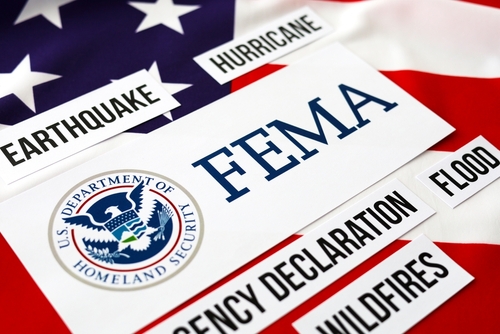
Iceland, a nation known for its stunning landscapes and geothermal activity, is currently grappling with an unprecedented crisis. The country declared a state of emergency on November 11th, 2023, following a series of powerful earthquakes that shook the southwestern Reykjanes peninsula. This seismic activity has raised fears of a potential volcanic eruption, leading to the evacuation of thousands of residents.
The town of Grindavík, located approximately 25 miles southwest of the capital city Reykjavik, has been particularly affected. The town lies near the popular Blue Lagoon geothermal spa resort, which has been temporarily closed as a precautionary measure. The significant geological deformation in the area has caused extensive damage to the town’s infrastructure, including large cracks in the ground and damage to city pipes.
🚨#BREAKING: Iceland Declares State of Emergency Due to Volcanic Eruption Threat Following 1400 Earthquakes in 24 Hours
📌#Grindavik | #Iceland
⁰Icelandic authorities have declared a state of emergency following a series of powerful earthquakes that shook the country's… pic.twitter.com/3BStzg8e62— R A W S A L E R T S (@rawsalerts) November 11, 2023
The Icelandic Civil Protection Agency has warned that the earthquakes may intensify, potentially leading to a volcanic eruption. Magma, a mixture of molten and semi-molten rock found beneath the Earth’s surface, has been observed accumulating under the Earth’s surface. If this magma reaches the surface, it could trigger an eruption.
However, despite the alarming situation, authorities have emphasized that there is no immediate need for panic. Residents have been advised to evacuate their homes calmly and securely, with ample time to prepare. This is not an emergency evacuation, but a necessary precaution given the circumstances.
Iceland Declares 🚨STATE OF EMERGENCY🚨 due to the massive amounts of earthquakes near Grindavik and soon possible Volcano Eruption! pic.twitter.com/XJHRU3mK2X
— X Posterity (@NewXPosterity) November 12, 2023
The current situation is being described as a ‘hugely powerful scenario’ with no clear end in sight. Uncertainty remains regarding when evacuated residents can return home. A magma tunnel forming could potentially reach Grindavík, but it remains impossible to predict if and where the magma might break through to the surface.
Iceland is no stranger to seismic and volcanic activity. The country straddles the Mid-Atlantic Ridge, a crack in the ocean floor separating the Eurasian and North American tectonic plates. It has 33 active volcanic systems, the highest number in Europe. However, the current situation is unprecedented in its scale and potential impact.
The Icelandic Met Office initially predicted that an eruption would most likely take place ‘in several days rather than hours’. However, recent observations suggest that seismic activity is moving closer to the surface and magma is beginning to rise vertically toward the Earth’s crust. This indicates that an eruption could occur sooner than initially expected.
This crisis serves as a stark reminder of the power and unpredictability of nature. As we continue to monitor the situation in Iceland, it is crucial to remember the importance of preparedness and calm in the face of such challenges. The resilience and unity of the Icelandic people during this difficult time are commendable and serve as an example for us all.
In conclusion, while the situation in Iceland remains uncertain, the country’s response to this crisis demonstrates the importance of preparedness, calm, and unity in the face of natural disasters. As we watch and wait, our thoughts are with the people of Iceland during this challenging time.












